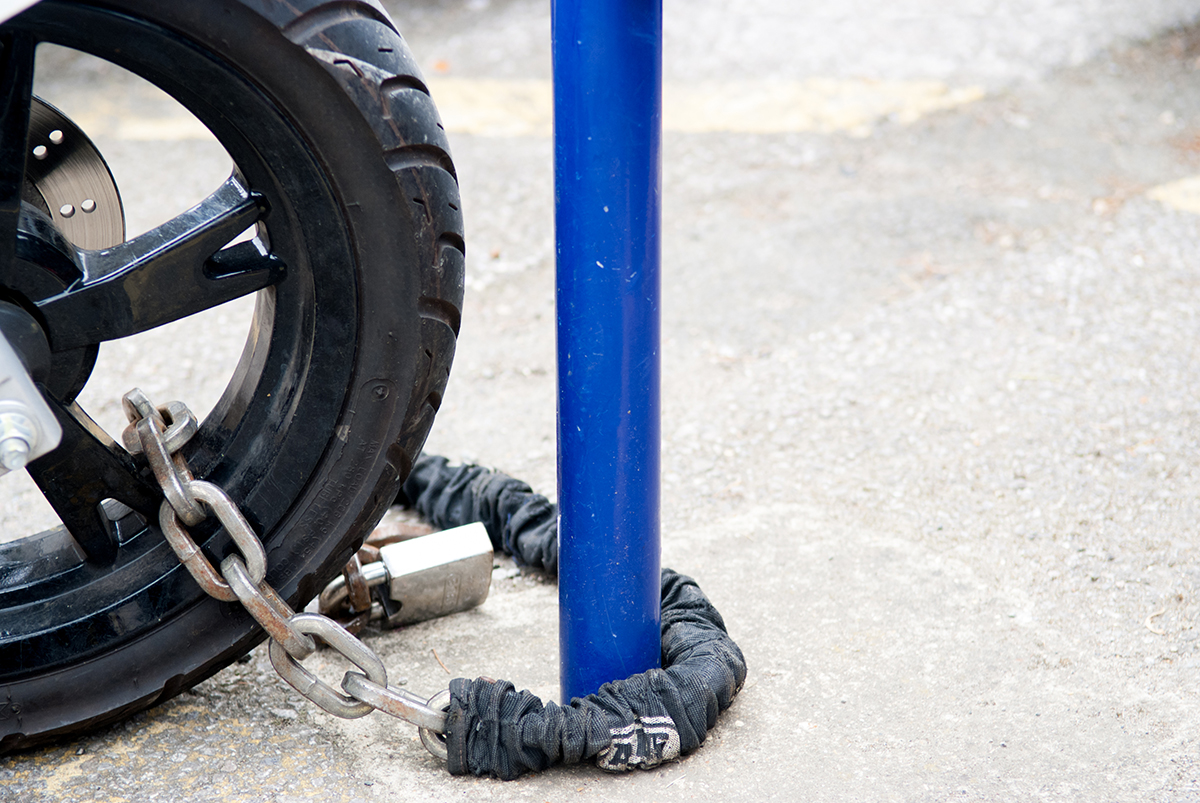Need-to-know tips & services to keep your personal safety risk low, so you can keep your grades high
Whether you’re the parent of a new or returning student or you’re cracking the books yourself, the excitement of advancing your career, making friends, and living on campus is what it’s all about.
But with so much going on, it can be tough to keep personal safety at the top of your mind.
In 2021, the National Center for Education Statistics reported that there were 23,400 crimes on campuses nationwide, with forcible sex offenses, burglaries, and car thefts being the most common.
It takes a keen eye to avoid these and other dangerous incidents, and that’s exactly why we made this campus safety guide. To give you the tools and insight you need to reduce risk and have a safe, fulfilling college experience.
Personal Safety on Campus
First, let’s start with some general tips you can put into practice today to instantly level up your personal safety.
- Mind your surroundings – There’s no need to walk around campus in a constant state of paranoia. But as you go about your day, doing things like walking to class, your car, or meeting new people, do your best to maintain a level of awareness of what’s going on around you. This will lessen the likelihood of unwanted surprises and help you steer clear of any dodgy-looking situations.
- Buddy up – As often as possible, do your on-campus activities with at least one other person. Criminals go for the easiest targets they can find, and studying, commuting, and walking around campus with friends is a great way to remove you from their radar. There’s a reason the saying goes, “There’s safety in numbers.”
- Stick to well-lit, well-populated areas after hours – If you’re out and about at night, take the path with the most lighting and foot traffic—even if it’s the longer route. That way, you’re less likely to be targeted, and if something does happen, you’ll have people nearby to call out to who can lend a hand or call for help.
- Avoid wearing a lot of flashy, expensive-looking jewelry – It may look great on you, but it looks even better to would-be thieves. This doesn’t mean you shouldn’t wear any at all, but when you do, keep it minimal to avoid placing a target on your back.
- Keep your dorm door locked at all times – College culture can promote a relaxed approach toward “home” security, but it’s important to keep in mind that your dorm is your private living space (even if shared). It’s your home, and it shouldn’t be accessible to any and everyone. You may know your neighbors well enough to trust them, but they’re not the only ones who share the building with you.
- Piggybacking on this campus safety tip: Avoid leaving spare keys for friends outside your dorm whenever possible. You may have to do it at one point or another, but keep it to a minimum to prevent unfettered access to your living space.
- Always check the peephole first – Even if there’s a familiar voice behind the door, make sure you know what to expect on the other side before granting access to your personal space.
Car Safety on Campus
If you’re like most college students, you won’t just be walking around campus. Take these campus safety tips along for the ride to help prevent any incidents with your car.
- Keep your keys in your hand as you approach your car – This way, you can enter and lock your doors quickly if you feel unsafe.
- Check the backseat before getting in – A quick look (or shine of your phone flashlight) is all it takes to ensure you don’t have any uninvited passengers waiting for you when you get in your car.
- Keep valuables hidden – Items left in full view on the seats are fair game for many thieves. To avoid making your car a potential target, store your valuables in the trunk, the glove box, or the center console so they’re out of sight.
- Don’t pick up strangers – This campus safety tip is a no-brainer, but we felt the need to add it to this list, given the frightening statistics we shared above. When you pick up a stranger, you never really know who you’re letting into your car, so it’s best to avoid it entirely.
- If you’ll be drinking, have a DD or use Uber/Lyft to get home – This is a core car safety rule that can be all too easy to break when dealing with peer pressure. That’s why going in with a clear-cut game plan is key. Set up your ride home before the party starts, so all you have to do is go through the motions to get home.
Blue Light Emergency Phones
If you’re new to college, you may not have heard about these yet, but nearly all college campuses in the US (92%) have emergency blue light phones.
These public safety systems look like tall pillars or boxes equipped with bright blue lights that stay on all day and night and offer 24/7 instant access to either local law enforcement or campus security.
So, if someone’s following you, you feel like you’re in danger, or there’s a medical emergency, you can find the nearest blue light phone and get help immediately.
The best part is that campuses are typically littered with them, so you won’t have much trouble finding one.
On-Campus Transportation Services
Many colleges also have overnight transportation services to ensure students’ safety after hours.
Often called Safe Ride, these university-funded programs allow students to request a ride to their dorm, car, or other on-campus locations for free.
If you’re familiar with Uber or Lyft, Safe Ride comes with an app that works much the same way. You give your location, put in a destination, and wait for a volunteer to pick you up.
And if you want to walk somewhere but don’t want to go alone, some programs offer a Safe Walk feature, where you can request a campus volunteer to escort you to your destination on foot.
Rescu Personal Safety App
Sometimes, emergencies may not leave you time to search for blue light phones. Other times, you may need a quiet, discreet way to get help.
In these scenarios, the campus safety tip we covered above won’t cut it, and neither will the 911 system. You can’t be discreet if you have to talk over the phone. And even if text-to-911 is available in your state (it’s only supported in 19, currently), the time it would take to type out what’s going on is time you may not have.
If you want the fastest way to get help in an emergency—that doesn’t require you to speak to a dispatcher—get the Rescu personal safety app.
With Rescu, you can instantly dispatch police, fire, or ambulance services to your current location anywhere in the US with just two taps on your smartphone or Apple Watch. Cutting-edge GPS technology and a 24/7 subscriber-dedicated monitoring center mean you’ll have help on the way within seconds. No talking necessary, and no risk of delays.
Additionally, the app stores and automatically sends your pre-registered personal and medical information to responders when you send an alert. That way, they know how best to care for you when they arrive.
Rescu is personal, medical, and campus safety all in one, right in your pocket. Find out more about the app and its features—like the unlimited emergency contact list and two-way dispatcher text chat—at our website, and use the buttons below to get started with Rescu for just $8.25 a month:





